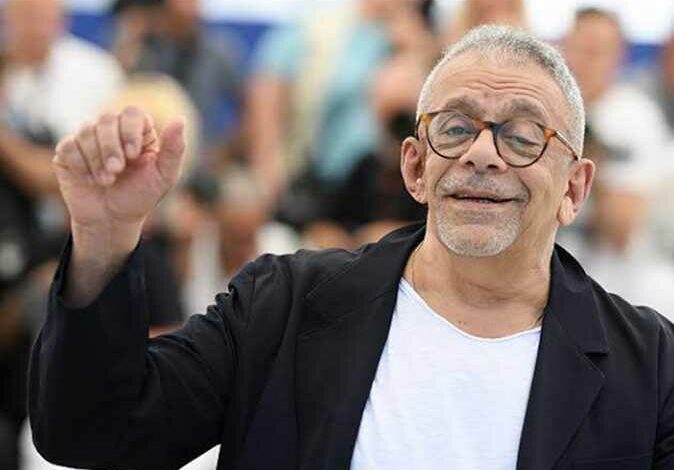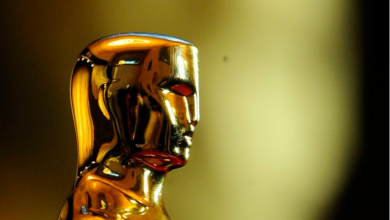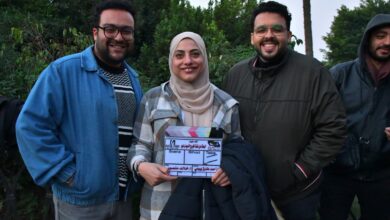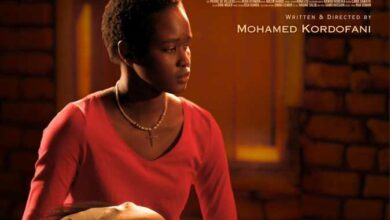
The 45th session of Cairo International Film Festival has awarded Egyptian director Yousry Nasrallah the Golden Pyramid Award for Life Achievement.
The 45th edition of the CIFF is scheduled from November 15-24.
A storied career
Nasrallah studied political and economic sciences at Cairo University, and then studied cinema at the Higher Institute of Cinema. He later moved to Beirut to work as a film critic for the Lebanese newspaper As-Safir for four years during the Lebanese civil war.
He would go on to work as assistant director in Beirut for German director Volker Schlöndorff and Syrian director Omar Amiralay.
Nasrallah returned to Egypt in 1982, where his artistic career would then take off in 1985 after he joined a team of assistants of the late director Youssef Chahine.
He assisted on Chahine’s “Hadduta Masreya” (An Egyptian Story; 1982), then “Adieu Bonaparte” (1985), starring Michelle Piccoli, Patrice Shero and Mohsen Mohieldin.
Nasrallah participated in writing the script for the film as a prelude to his next steps as a film director.
His first role a director was in 1988 with his debut “Sariqat Sayfeya” (Summer Thefts), which was shown first at the 1988 Cannes International Festival, and then was shown at various international festivals, winning numerous awards.
Nasrallah returned to work with Chahine’s team and participated as an executive director in the “Eskenderia Kaman Wi Kaman” (Alexandria Again And Forever) in 1990. He also participated in writing it. The film serves as the third part of Chahine’s biography after “Eskenderia Leh?” (Alexandria… Why?;1979) and “Hadduta Masreya”.
In 1993, Nasrallah wrote and directed his second film, “Mercedes.” It won the Silver Award in 1994 at the Khouribga African Film Festival in Morocco, and the Best Film Award in 1994 from the Twentieth Film Association Festival.
In 1995, actress Yousra won the Best Actress Award in the Ouagadougou Festival in Burkina Faso for her role in the film.
And in that same year, Nasrallah directed a documentary film entitled “Sobian Wi Banat” (Boys and Girls) written and directed by him, starring Bassem Samra. It follows Bassem’s life, who was then working as a teacher in an industrial school before taking his first steps into the world of art alongside Nasrallah.
In 2000, Nasrallah presented one of his most important films, “al-Madina” (The City). Three authors joined in writing – Nasser Abdel Rahman, French director Claire Denis, and Nasrallah.
The movie is notable as it is considered one of the first digital cinema experiences in Egypt.
Celebrated talent
In 2004 Nasrallah directed one of his biggest projects – “Bab al-Shams” (Gate of the Sun), based on the novel of the same name by the Lebanese novelist Elias Khoury, who co-wrote the script with Nasrallah.
Lebanese director Mohamed Sweid also worked on the film, which is told in two halves: “al-Raheel” (The Departure) and the second part “al-Awda” (The Return). These were presented together for the first time at the Cannes Film Festival in the official section outside the official competition, and were well received by film critics in France and Europe.
Nasrallah received the Knight’s Medal in Culture and Arts from the Mayor of Paris, one of the highest French honors, that until then only Youssef Chahine received amongst Egyptian directors.
The two films were listed on the Time list of the ten best films shown in 2004, and the film ranked 42nd among the list of the 100 best films in Arab cinema, according to a survey of film critics conducted by the Dubai International Film Festival in 2013.
The Locarno International Film Festival recently announced that the film will be restored and re-displayed this year in 4K quality within the official program of the festival, which will be held from August 2-12, 19 years after its premiere.
Nasrallah presented “Geneinet al-Asmak” (The Garden of Fish), which was shown in 2008 at the Berlin Festival Panorama, the second most important section after the official competition.
It is the only Arab film that participated in the festival’s 58th session.
Later work
Nasrallah collaborated for the first time with actress Mona Zaki in 2009 with the movie “Ehki Ya Shahrazad” (Tell Me, Scheherazade).
He also directed the controversial “Baad al-Mawqea” (After the Battle), which documents the scenes of a famous event during the January 25 revolution in Egypt, “The Battle of the Camel”.
The film participated in the official competition of the 65th Cannes International Film Festival, and it was also shown in Toronto and on the sidelines of the official competition of the Venice Festival, and in the official competition of the ninth International Film Festival in Marrakech.
He presented his latest film, “Water, Greenery, and the Beautiful Face” in 2016. It was first shown in the official competition of the 69th session of the Locarno International Film Festival, after years of absence from the competition for Egyptian films.
Nasrallah previously participated in the same festival with his “The City” film in 1999, “Mercedes” in 1993, and “Boys and Girls” in 1995.
He is the first Egyptian filmmaker to chair the short film jury at the Cannes International Film Festival, the most prominent film festival in the world, crowning a truly distinguished artistic career.




